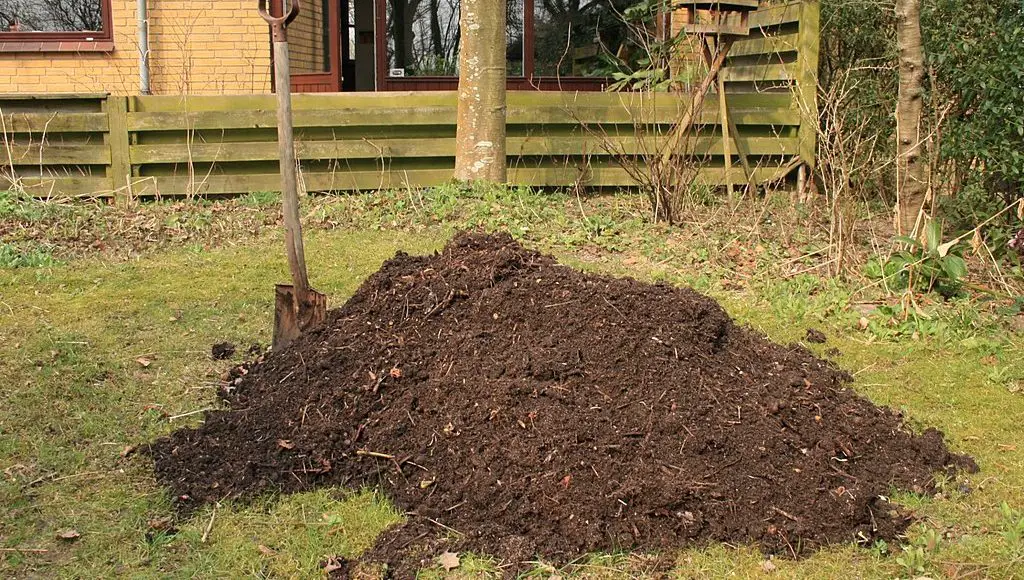One of the best things you can do with your garden or kitchen waste is to create a compost pile. The world is changing and with our increasing awareness on environmental issues, we are forced to change.
Simply put, we’re all trying as hard as possible to limit our impact on the environment, and a few people see composting as a solution.
Composting is one of the easiest yet most environmentally conscious practices you can employ. It’s not only an incredible way to dispose of organic waste and minimize your carbon footprint, but it also provides your plants with a powerful fertilizer free of charge.
According to EPA, food, and yard food scraps make up nearly 30% of what households throw away. Composting not only eliminates this waste from landfills, but turns it into something useful capable of boosting the quality of the soil by enhancing the availability of nutrients and other organic compounds.
Also, methane is the largest contributor of greenhouse gases in our landfills, so by composting organic waste, we can minimize its emission.
So, how long does it take to create compost and how long does it last? Well, you can’t build compost overnight. Many composting experts agree that anything from a few months to two years is a realistic time period. Also, it has been proven that both homemade and commercial compost can last for more than one year when sealed. However, it is important to note that both the compost volume and microbiological activity may decline to some extent after the first year.
Of course, there are ways to preserve your compost and ensure it remains in tip-top condition, which is what we will also discuss in this article.
What Is Compost?

Composting refers to a natural process by which organic materials such as lawn trimmings, food waste, and other organic materials are broken down by naturally-occurring bacteria in the soil to form compost. The end product, compost, is a nutrient-rich material that looks strikingly similar to soil itself.
Composting can be successful in nearly all settings, from outdoor piles, indoor bins in apartments, to office spaces.
What Waste Is Compostable?
Vegetable scraps and fruits are the perfect examples of what you should compost.
At the very basic level, anything made from organic material is compostable. However, not every organic material is safe for your compost pile.
The following waste products are definitely safe for your compost:
- Vegetables
- Fruits
- Grass clippings
- Cardboard
- Sawdust or wood shavings
- Houseplants
- Hay and straw
- Leaves
- Paper
- Teabags
- Coffee grounds and filters
- Yard trimmings
- Shredded newspaper
- Cotton and wool rugs
- Fireplace ashes
They’re either nitrogen or carbon rich materials that will feed the existing microorganisms in the pile, so that in turn, they decompose the waste and turn it into a valuable soil conditioner.
What Shouldn’t You Compost And Why?
There are some items you should not compost, particularly if you’re planning to do so in a homemade compost pile. For one, they might ruin your pile, and second, a regular compost pile might not have the right set of conditions to decompose them.
These are the items you should avoid composting:
- Dairy products such as milk, sour cream, butter, and yogurt, and eggs. This is because they result in odor-related problems that might attract the attention of flies as well as rodents.
- Insect-ridden or diseased plants. There is a chance that the diseases or insects might survive and ultimately find their way to other surviving plants in your yard.
- Grease, lard, fats, and oils. These will also create unwanted odor problems that might lead to the attraction of pests such as flies and rodents.
- Fish or meat bones and scraps. They will attract rodents and insects into your yard, and they don’t decompose as quickly as fruits and vegetables, which might significantly slow down the composting process.
- Yard trimmings that are treated with chemical-based pesticides. Because of their chemical composition, they can potentially harm the beneficial composting organisms.
Normally, to decompose some of these materials, most people seek an industrial composting facility, as they have the right technology to handle waste that is harder to break down.
How Long Does Compost Really Last?
Compost can last between a few months to two years.
However, the lifespan of your compost will also depend on the climate and underlying conditions, for example, if you live in a hot and humid climate with lots of rainfall, it’s normal for compost to break down faster – which means it may go bad more quickly.
At the same time, if you store it in a bag, it might last several years, but keep in mind that it eventually loses some volume. What’s more, its consistency may become fairly heavier and denser as it continues to break down.
If you want your compost to last longer, there are a few things you can do.
How To Make Your Compost Last Longer
Most composting experts agree that the best way to store fresh, garden-ready compost is by making sure it’s placed in a container that isn’t air-tight and allows for some moisture.
Put simply, you want moderate oxygen to maintain the micro-organisms in the compost active, and in turn, ensure that your compost doesn’t become anaerobic and rot.
Storing compost for relatively longer periods, particularly during winter months can be a daunting task that needs serious planning. You need to protect your composting material from excessive moisture while at the same time ensure there is sufficient airflow, otherwise you won’t be able to prevent the micro-organisms from dying.
Here are some things you can do:
- Choose a good spot for outdoor storage: The most straightforward way is to store your compost on the ground, especially if you have enough space in your garden. You only need to shelter that place to ensure mature materials will remain protected. The area should also be leveled and well-drained to ensure that any excess water drains with relative ease. Such a setting will also allow worms to effortlessly get in and out of the compost even as they break the content down.
- Include the right stuff in your compost: As earlier mentioned, vegetable peelings, teabags, fruit waste, grass cuttings as well as plant remains are great composting waste. They are not only fast and easy to break down, but also provide essential nitrogen as well moisture. However, if you want your compost to last a bit longer, include materials such as scrunched paper, cardboard boxes as well as fallen leaves, among others. These are relatively slow to decompose but still offer vital carbon and fiber and allow air pockets to form in the mixture.
- Give it adequate aeration: A well-cared-for compost pile needs to be regularly turned, which can sometimes prove to be a tricky task, especially if lack the right tools. Turning the compost pile not only helps to aerate the content, but also the waste to mix up effectively which leads to proper composting.
- Take advantage of compost bins: If you don’t fancy creating a compost heap in your garden, a compost bin offers a practical solution to your problem. They are effective, compact, and ideal for smaller yards and gardens. If possible, turn the compost more regularly, and your pile will possibly remain healthy for an extended period.
- During winter, put a lid on your pile: During snowfall or heavy rain, excess moisture can soak the compost bag or bin, which may drown the aerobic micro-organisms and bring the composting process to a halt, leaving you with a rather useless compost. To prevent this from happening, give your compost pile an artificial roof to prevent excessive precipitation.
Naturally, it’s also important that you find a good solid container capable of protecting your compost, particularly when the weather isn’t favorable.
Which Compost Bin Should You Get?
Regardless of where you live, composting your waste and transforming it into an ‘organic fertilizer’ is a positive action on many levels.
However, the whole composting process can be intimidating, particularly if you’re new to the world of composting. Thankfully, there are composting solutions for just about any level of experience.
In this section, let us look at some of the best composting containers you can get:
Outdoor FCMP IM4000 Composter

This 37-gallon tumbling composter (which is available on Amazon) is perfect for beginners who may not have the expertise to build quality compost, space, patience, or time to tend to a conventional compost in their garden.
It is divided into two chambers, allowing you to compost two batches simultaneously and ensuring you benefit from a steady flow of manure. It is also highly durable, thanks to its heavy-duty BPA-free construction and corrosion-resistant steel frame.
It also guarantees excellent aeration because it features aeration holes and deep fins that function holistically to break up any clumps inside the chamber. It is a highly efficient composting system that can finish composting in as little as two weeks!
Redmon 8000 1883 65-Gallon Compost Bin

Here is another fantastic composting device worth your investment. It is specifically designed to offer an efficient and simple way for homeowners to compost their household waste as well as kitchen scraps.
It boasts a large bin equipped with a large lid and plenty of aeration holes to give your compost ample breathing space. It also has holes at the bottom to allow users to effortlessly turn their pile for an optimal composting environment.
It is also easy to use and set up thanks to its simple yet practical design. It offers much-needed durability thanks to its high-impact plastic that should last for an extended period. Unlike the other products that are relatively expensive, the Redmon compost bin (on Amazon) can be found at a highly affordable price and offer far superior performance.
Jora JK270 Tumbler Composter

If you are looking for a high-end composting device that guarantees superior performance and unmatched durability, look no further than this fantastic product. It brings onboard dual and highly insulated chambers that can support up to 70 gallons.
Thanks to its dual-chamber construction, it allows you to seamlessly work on two different batches simultaneously. It is a highly reliable and versatile composter that will serve you year-round because it is excellently insulated.
For enhanced durability, the Jora JK270 (also available on Amazon) is made of top-notch materials, including galvanized metal that is rust-resistant. What’s more, Jora is wall-mountable to give users increased flexibility over how and where they install it.
The potential benefits of compost are nearly endless. And if you want to become a successful gardener, you must know how to prepare and preserve compost.
Furthermore, you should learn about the various techniques for storing your compost to ensure adverse weather doesn’t impact its quality. If stored and managed properly, compost can last at least a year and still provide your garden plants with valuable nutrients.
